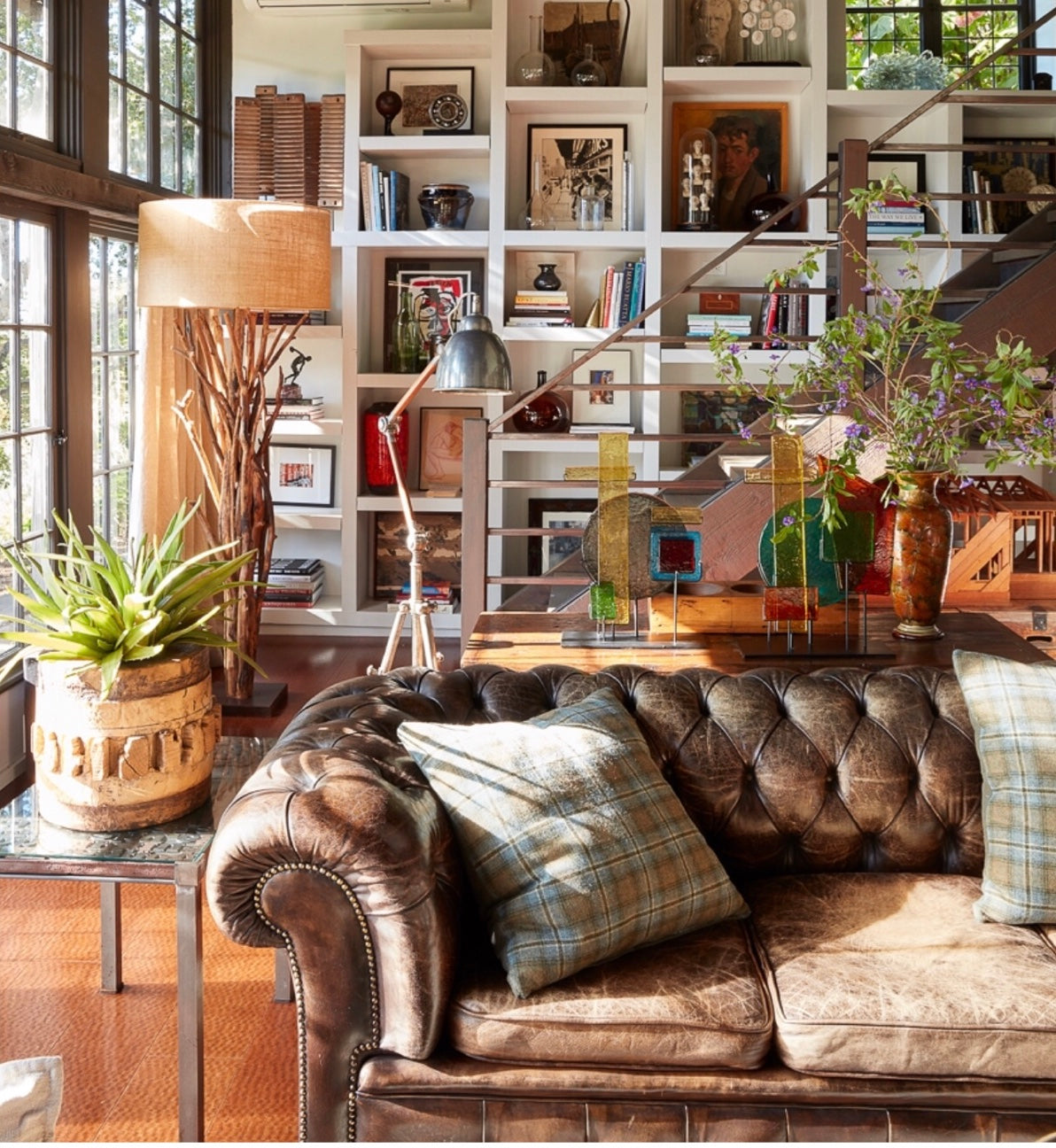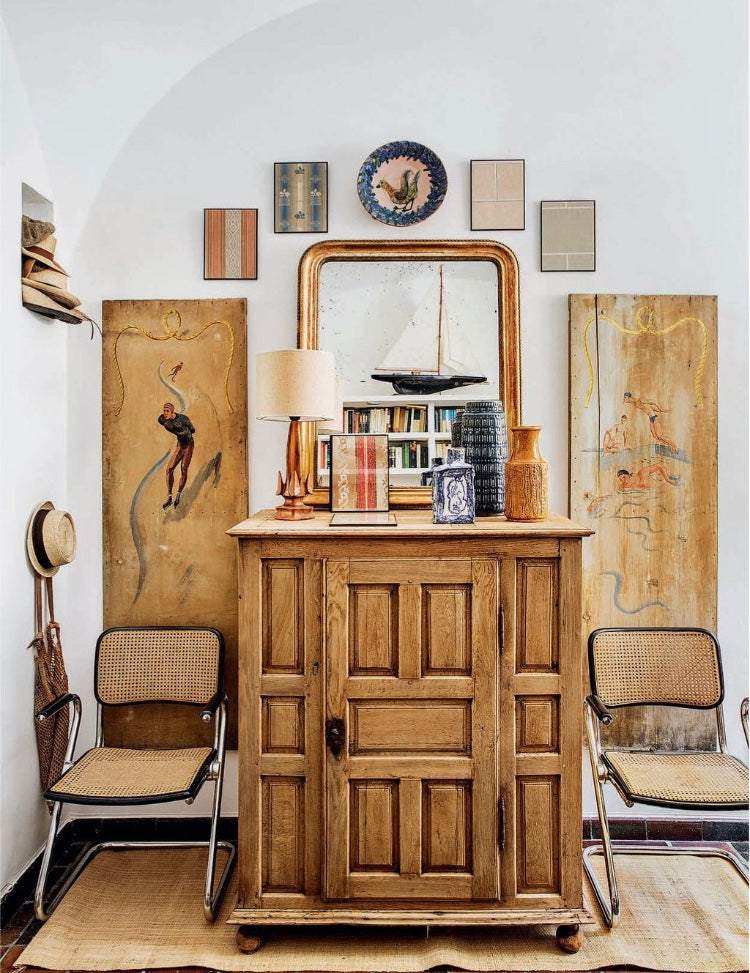Age Is Beauty

There is no argument that antiques add a level of experience, knowledge and sophistication to our homes. They bring a layer of history, culture and character into our spaces that we may never otherwise experience. When we think of antiques, we often think of fine, well-preserved pieces sought out by museums and serious collectors—admired but hardly touched. Yet antiques are just as often overlooked because of their patina, which can in fact bring texture and endearing beauty into even the most edited—or grandest—of homes.
The patina from age, and the life an object has led, humbles that historical, cultural, and sophisticated presence. It adds a sense of familiarity and comfort—like the gentle smile of a favorite aunt, uncle, or grandparent. These pieces come with a story we can learn from and share. With that in mind, I suggest we explore the aging process and consider objects with patina as an art form—embracing the traces of time as beauty.
Let’s start with furniture. We’ve all seen wood straight from a lumberyard—soft, porous, aesthetically one-dimensional. That’s why wood is cured: to release moisture, protect against decay, prevent warping, and ready it for finish. Think of curing like the early stages of winemaking. We don’t drink wine the moment grapes are pressed; vintners stabilize and begin fermenting in stainless tanks before the slow magic happens.
After curing, wood becomes furniture—but at this stage it can lack the depth we love in older pieces, just as wine lacks character before barrel aging. In time, exposure, handling, and use impart richness—tone, sheen, and nuance—that no shortcut can replicate.
The same is true of leather, metal, and pottery. They, too, take on a discerning patina that’s difficult to achieve in objects that haven’t been lived with and cared for over time.
Taking patina a step further, consider raw, honest objects in their purest state: workbenches, wine-tasting tables, comfy leather club chairs, industrial forms never intended to be precious. These celebrate imperfection. Their deconstructed utility can become sculpture—with a structural, modernist character that can’t be faked. Don’t we all appreciate that sense of individuality? There’s satisfaction in something truly unique—made so by years of use, enjoyment, and care. Take pride in a piece that has earned its beauty and personality in its own right.
In Residence: Jasper Conran | via NOWNESS
As British designer Jasper Conran says, “Patina is character. It represents the life of an object and gives it soul.”


